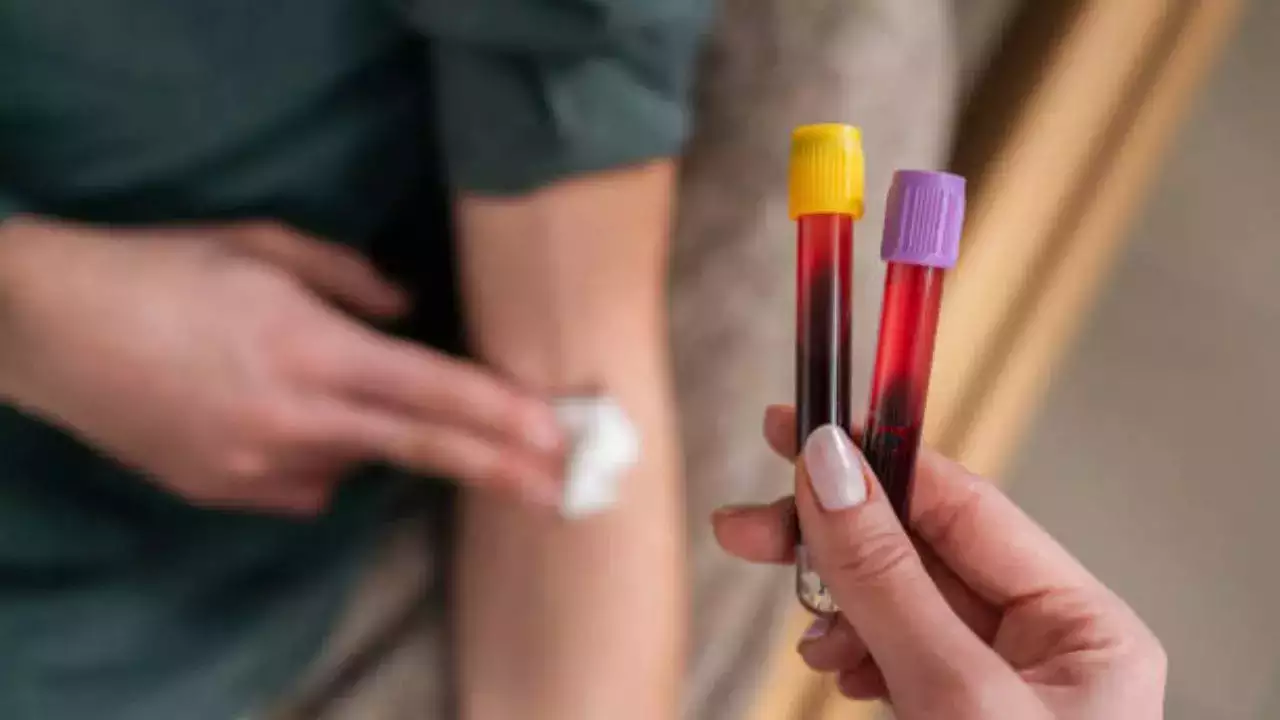
Iron plays an important role in maintaining adequate hemoglobin levels in your blood
Those who regularly donate blood can develop anemia – the most common type of iron deficiency, which happens when your blood has fewer red blood cells or less hemoglobin than normal. Hemoglobin is a protein in red blood cells that carries oxygen from your lungs to the rest of your body. When there's not enough oxygen-rich blood, your organs and tissues, like your heart and brain, may not function properly.
Across the world, around 118.54 million people donate blood annually. Doctors say nearly 35 per cent of regular donors develop iron deficiency.
How does donating blood cause anemia?
According to experts, one of the main causes of anemia is blood loss and when you donate blood, you are effectively losing blood. Iron plays an important role in maintaining adequate hemoglobin levels in your blood.
It is important since hemoglobin is a protein in red blood cells that helps carry oxygen from your lungs to your organs and tissues.
Can you donate blood if you have blood if you have anemia?
Doctors say the minimum hemoglobin level before donating blood is:
- Males: 13.0 g/dL
- Females: 12.5 g/dL
Anemia gets diagnosed when your hemoglobin levels are below these numbers, which means you cannot donate blood if you have anemia. And so, before you decide to make the donation, make sure to get your levels checked by the doctor.
If you do not meet the minimum requirements, you will have to wait at least a month before being allowed to go for a donation. During this time, you may be able to take measures to increase your levels to meet the minimum donation requirement.
Signs and symptoms of anemia
A few signs and symptoms of anemia include:
- Severe fatigue and tiredness
- Chest pain
- Dizziness
- Frequent infections
- Heart palpitations
- Headache
- Pallor, in which the skin colour is paler than usual
- Pulsatile tinnitus
- Breathlessness
Ways to treat anemia
According to experts, your treatment for anemia depends on what causes it. If you have anemia because of an underlying condition, your provider can treat it. Treatments may include dietary supplements or medications.
Dietary supplements
A few dietary supplements recommended by the doctors include:
Iron supplements
It comes in capsules or tablets that you can take by mouth with a glass of water.
Folic acid
Vitamin B9 or folate is an essential vitamin that helps your body form red blood cells and DNA, which are the building blocks of your body.
Vitamin B12
Vitamin B12 supplements help support the production of healthy red blood cells.
Medications
Doctors may prescribe medications for anemia, which include:
Erythropoietin
It helps your bone marrow to produce more blood stem cells.
Immunosuppressants
If you have anemia because of an autoimmune disorder, your doctor may prescribe medication that keeps your immune system from attacking your red blood cells.
Procedures
A few procedures would include:
- Blood transfusion
- Stem cell transplant
- Surgery to treat internal bleeding that causes anemia
Get Latest News Live on Times Now along with Breaking News and Top Headlines from Health and around the world.
